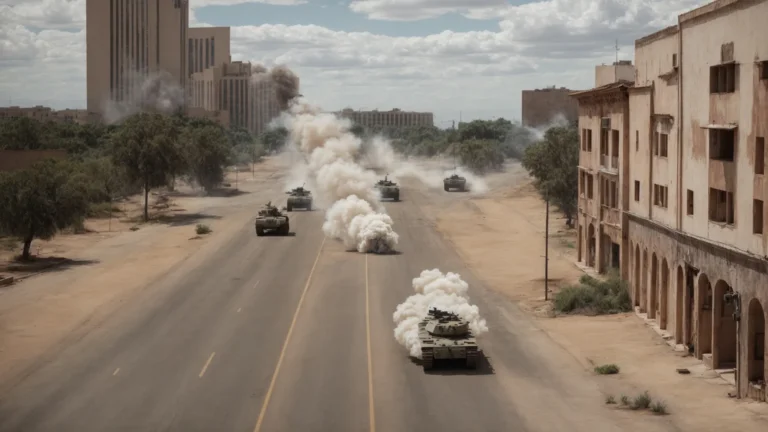Ecuador finds itself in the throes of an internal armed conflict, as escalations in political tensions and disputes over gang violence caused by the escape of José Adolfo “Fito” Macías Villamar, have given rise to outbreaks of violence throughout the country. This civil unrest has not only upended the lives of citizens but also thrown a wrench in the gears of international trade and investment. As the government grapples to restore order, the eyes of the global community are fixed on Ecuador, with stakeholders weighing the implications for regional stability and economic prosperity. Keep reading to learn how this once-peaceful nation veered towards conflict and the potential repercussions it holds for Ecuador’s Armed Conflict and its impact on Investors.
Impact of Ecuador's Internal Armed Conflict
- Ecuador’s Internal Armed Conflict Presents a Critical Challenge to Its Social Stability and Economic Vitality
- Foreign Direct Investment and Local Businesses Are Significantly Affected by the Volatility and Uncertainty Caused by the Unrest
- International Investment Disputes Arise as Investors Evaluate Potential Treaty Breaches and Consider Arbitration Proceedings
- The Government Must Balance Domestic Conflict Management With the Protection of Foreign Investors’ Rights as Per International Agreements
- Ecuador’s Crisis Has Drawn International Attention, With Various Global Entities Offering Aid and Discussing Potential Sanctions or Interventions
Overview of Ecuador’s Unfortunate Internal Armed Conflict
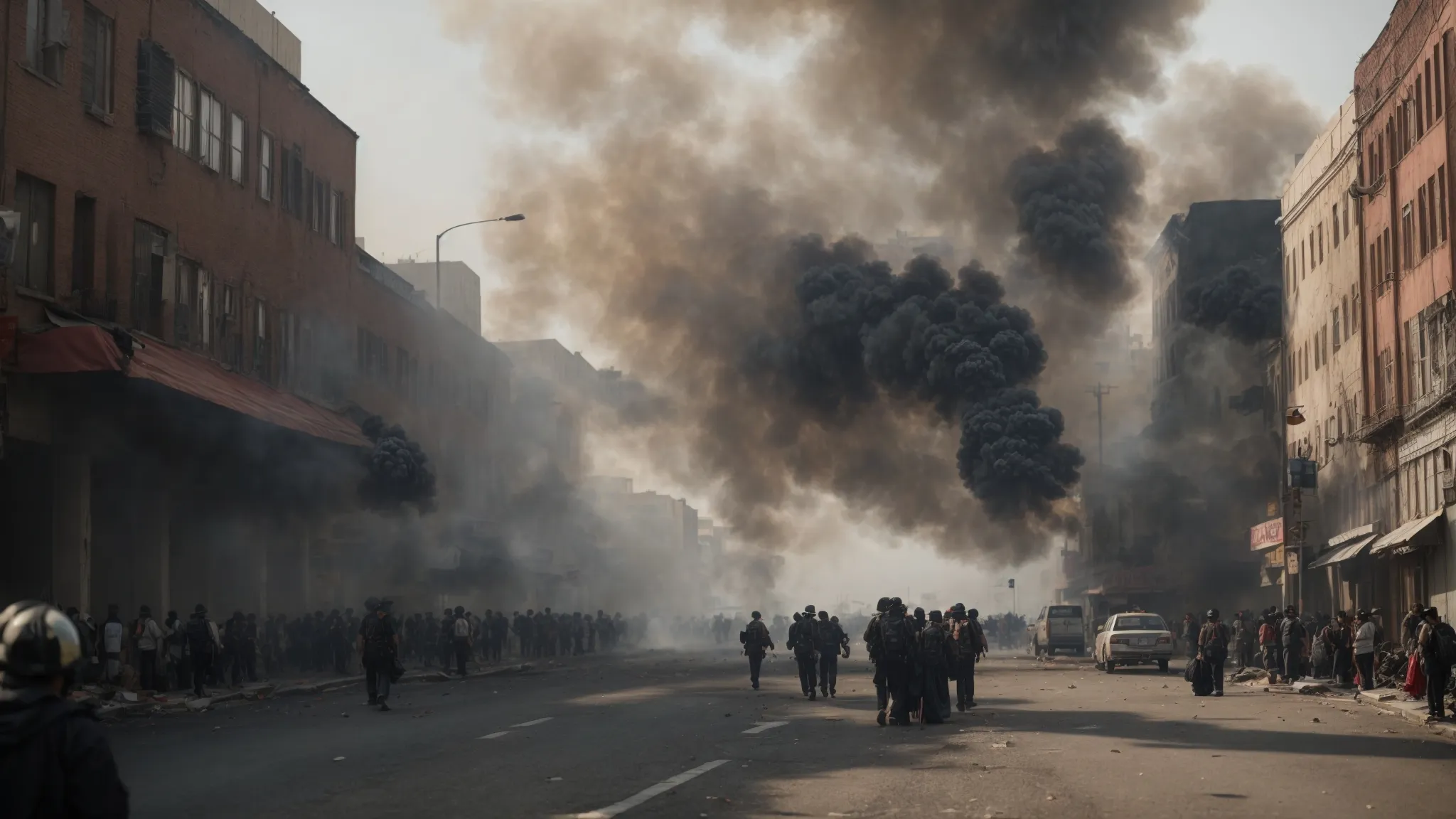
Tensions in Ecuador have escalated into what the government has recognized as an internal armed conflict, unleashing a turbid cascade of events that have experts and international observers on alert.
Sparked by intricate social (gang violence) and economic disparities, the unrest has pinpointed several areas as hotspots of violent encounters, challenging the very fabric of the nation’s peace and security.
The ripples of conflict are palpably disrupting civilian life, sowing seeds of fear and uncertainty in daily routines.
Against this backdrop of disruption, the government’s strategy to restore order and address the roots of the turmoil has become a focal point of scrutiny and debate.
In delving into the causes, the afflicted regions, the civilian aftermath, and the state’s countermeasures, a comprehensive understanding of a country grappling with an arduous challenge to stability and cohesion begins to emerge.
Causes of the Escalation
The recent civil unrest in Ecuador can be traced back to a series of escalating violent events and a surge in gang-related activities. A significant turning point was in 2021, marked by a prison riot in Guayaquil, which resulted in numerous deaths. This event highlighted a shift in Ecuador’s security paradigm, revealing the intense and deadly rivalry between criminal organizations vying for control over turf and drug-trafficking routes. These conflicts escalated over time, leading to numerous violent incidents and making 2023 the most violent year in Ecuador’s history.
The political landscape was also affected. During the presidential campaign in 2023, a candidate was assassinated, an unprecedented event in Ecuador’s history. This contributed to the rise of Daniel Noboa to the presidency. Noboa, who assumed office less than two months before the recent unrest, had pledged to eradicate violence through a security plan called Phoenix. This plan included measures such as deploying the armed forces domestically and proposing a referendum for tighter security measures.
The situation escalated further when José Adolfo “Fito” Macías Villamar, the leader of Los Choneros (one of Ecuador’s most formidable gangs) and the country’s most-wanted prisoner, escaped from a maximum-security detention center. This escape prompted President Noboa to declare a nationwide state of emergency and an “internal armed conflict.” The government’s strategy involves deploying full force against the gangs, with the president listing several groups, including Los Choneros, that the armed forces are tasked to neutralize.
The complexity of the situation is profound, involving issues of organized crime, political instability, and public security. The government’s response indicates a readiness to use significant force to address these challenges, and the situation remains tense and volatile.
Key Areas of Conflict
The epicenter of the internal armed conflict envelopes Ecuador’s historically marginalized regions, where indigenous populations congregate. Here, grievances have magnified, and clashes with state forces have become more acute, drawing attention to the stark contrast between urban developments and the underserved hinterlands. Treaty disputes have arisen as a result.
Another key area of conflict resides within the corridors of power in Quito, where policy decisions and political will butt heads. As protestors and government representatives lock in a tense standoff, the question of how to quell the unrest and address its underlying causes looms large over the nation’s political landscape.
Impact on Civilian Life
The declaration of an internal armed conflict has disrupted the rhythms of daily life for Ecuador’s citizenry. The impact pervades every aspect of civilian existence, from the grounding of education systems and hindered access to healthcare services to the stifled flow of commerce.
Uncertainty now hovers over the nation as Ecuadorians navigate through an atmosphere thickened with apprehension: once patterned by reliable routines, lives are now punctuated by the sporadic outbursts of conflict and the consequent government responses.
- School closures and limited healthcare due to conflict escalation
- Commerce disruptions affecting supply chains and local businesses
- The ambiance of fear altering daily life and community interactions
- Government measures introducing restrictions and curfews in certain areas
Government Response to the Crisis
In response to the recent civil unrest in Ecuador, President Daniel Noboa declared a nationwide state of emergency on January 8, 2024. This declaration was a direct response to the escape of Adolfo Macias, a notable gang leader, from a prison in Guayaquil and the subsequent surge in gang violence across the country.
The state of emergency includes a nightly curfew from 11:00 PM to 5:00 AM and empowers the armed forces to carry out law-enforcement operations throughout the country. The government has also intervened in the nation’s prison system, declaring areas within a 1 km radius of all prisons as secure zones where military and police forces can conduct checks and searches. These measures have led to the suspension of certain constitutional rights, including the right to assembly and freedom from warrantless searches.
President Noboa has taken a firm stance against the criminal organizations, declaring 22 gangs as terrorist organizations and authorizing military action to “neutralize” these groups within the bounds of international humanitarian law. This declaration of gangs as terrorist organizations signifies a shift in the government’s approach to dealing with organized crime and drug trafficking, which have been major contributors to the recent spike in violence.
The unrest has included various violent incidents, such as attacks on a television studio, explosions in cities, and prison riots, where inmates took guards hostage. In response to these incidents, the police and military have been actively involved in operations to restore order and apprehend those responsible for the violence. The government’s approach is a clear indication of its intention to tackle the issue of gang violence head-on, employing both military and legal strategies to address the crisis.
This situation in Ecuador reflects the broader challenges faced by the country in dealing with organized crime and its impact on national security and public order. The government’s response, while drastic, indicates a commitment to restoring stability and safety in the face of escalating violence and criminal activity.
International Reaction to Ecuador’s Turmoil
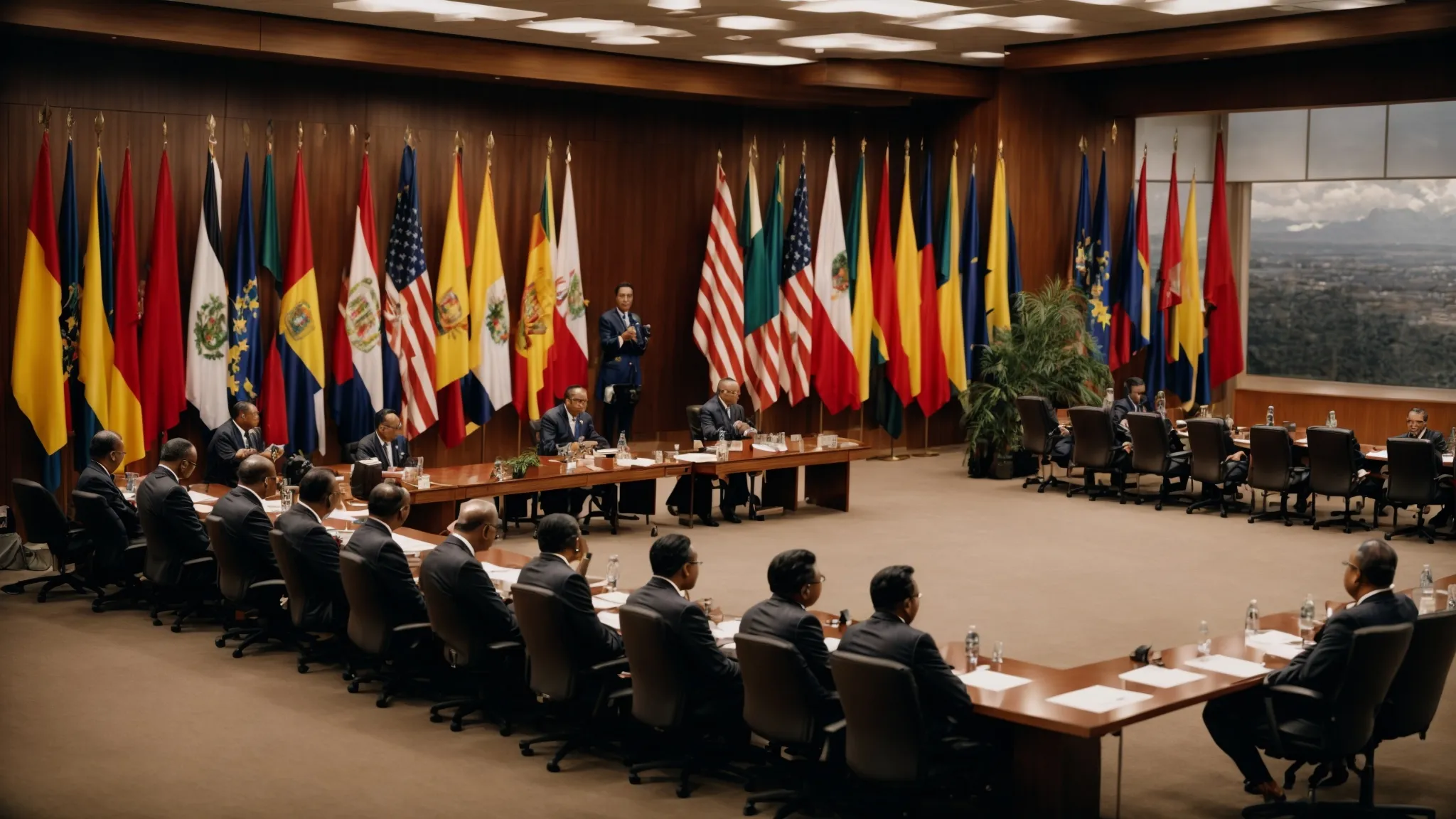
Ecuador’s declaration of an internal armed conflict has not only unsettled the nation but also drawn the eyes of the international community, triggering reactions that span the spectrum from concern to condemnation. The involvement of a tribunal has raised questions about dispute resolution and the potential impact on foreign direct investment. The presence of a lawyer from the International Centre for Settlement of Investment Disputes who specializes in international trade and bilateral investment treaty issues has become crucial for handling potential disputes and protecting foreign direct investment.
Global leaders, moved by the gravity of the situation, have issued statements that reflect a complex interplay of diplomacy and policy-shaping.
Aid organizations and foreign governments alike race to coordinate humanitarian efforts, providing a lifeline to those caught in the turbulence.
Meanwhile, discussions on the imposition of sanctions to exert pressure loom over international forums and conversations about the strategic intervention of regional alliances.
These factions are navigating a delicate balance between supporting Ecuador’s sovereignty and advocating for a resolution congruent with global peace and human rights standards.
Statements From Global Leaders
In response to the 2024 criminal violence in Ecuador, the United Nations, specifically through its Secretary-General António Guterres, strongly condemned the wave of criminal attacks. Guterres communicated his position on the situation in Ecuador, expressing deep concern over the deteriorating situation in the country and its disruptive impact on the lives of Ecuadorians.
The Secretary-General’s condemnation came in the context of a surge in gang violence following the escape of a prominent gang leader, leading to a series of violent incidents, including the kidnapping of police officers and a significant disruption of public order. This escalation of violence prompted the Ecuadorian President, Daniel Noboa, to declare a 60-day state of emergency.
In his statement, Guterres emphasized the gravity of the criminal acts of violence, sending a message of solidarity to the Ecuadorian people. He highlighted the importance of addressing the issues leading to such unrest and the necessity of restoring peace and stability in the nation.
The United Nations’ reaction to the events in Ecuador reflects its commitment to supporting peace, security, and the rule of law in member states. The Secretary-General’s statement underlines the international community’s focus on the situation in Ecuador and its potential implications for regional stability and human rights.
Historical Context of Ecuador’s Political Unrest
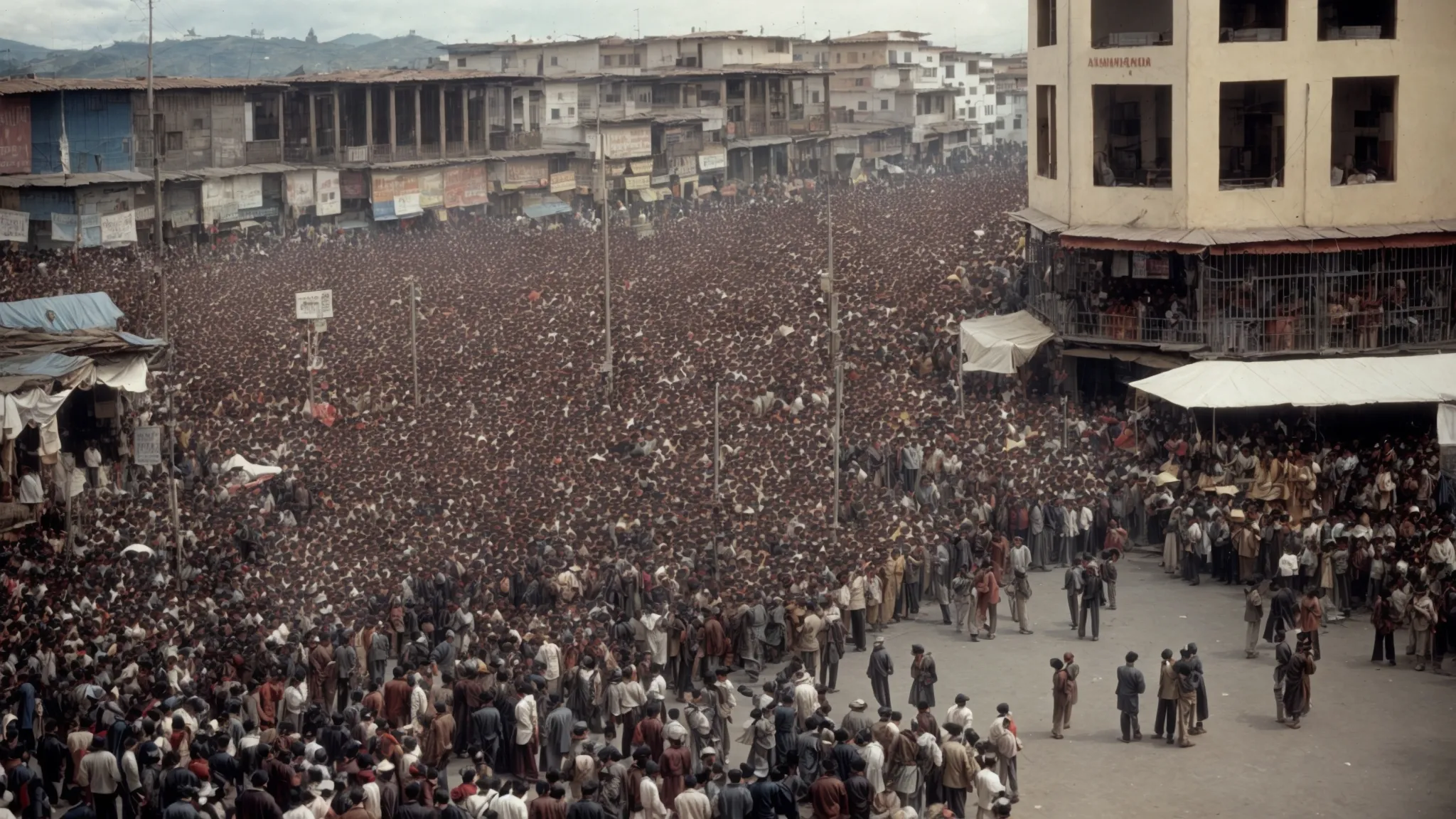
The latter half of the twentieth century etched deep grooves in the political landscape of Ecuador, setting the stage for periods of turmoil that often culminated in internal armed conflict.
The nation’s chronicle is fraught with instances where political schisms amplified to gang violence, revealing the delicate interplay between governance, cultural heterogeneity, and external geopolitical forces. A treaty is often a crucial instrument in dispute resolution, facilitated by the involvement of international organizations such as the United Nations Commission on International Trade Law and the International Centre for Settlement of Investment Disputes (ICSID). The involvement of lawyers and tribunals is essential in ensuring fair arbitration in cases of foreign direct investment and international investment agreement disputes.
As Ecuador confronts its current strife, acknowledging historical precedents becomes imperative to distill insights into the evolution of political fractures and the echoes of influence from surrounding nations shaping today’s unrest.
Past Incidents of Internal Conflict
Ecuador’s tapestry of internal conflicts is intricate, with historical episodes as precursors to its present struggles. A notable past disturbance erupted in the mid-20th century, marked by agrarian discontent and indigenous movements demanding land reform and better living conditions, setting a precedent for societal rifts.
This legacy of strife was accentuated during the turbulent 1980s, as economic instability fueled a series of strikes and protests. The turmoil intensified as various groups, representing a spectrum of social and political demands, leveraged force in bids to be heard, underscoring the nation’s vulnerability to internal strife:
- Agrarian and indigenous unrest in the mid-20th century
- Strikes and protests rooted in the economic instability of the 1980s
Evolution of Political Fractures
The seeds of Ecuador’s current political divisions can be traced to the persistent disconnect between government policies and the needs of the diverse population. Decision-making processes often seem inured to the calls for inclusive growth and equitable distribution of resources from marginalized communities, leading to recurrent impasses that exacerbate societal fractures.
With each government tenure, the political landscape shifts, sometimes exposing dormant fissures within society. Such realignments regularly fuel discontent, inciting activism across various layers of society as they endeavor to influence the national agenda and redress long-standing inequities.
Influences From Neighboring Countries
Ecuador’s political climate has been perceptibly shaped by the geopolitical currents of its neighbors, whose own internal dynamics often serve as a barometer for regional stability. Sharing borders with countries that have experienced their share of political fluctuations, Ecuador finds its internal situation influenced by both the policy decisions and economic shifts observed in surrounding nations, as well as the international trade agreements and arbitration they have in place.
The political tremors arising from the North Andean region and the influence of major player nations within the Latin American geopolitical space have left an indelible mark on Ecuador’s domestic affairs. Movements towards strengthened bilateral relations or regional cooperation may offer avenues for Ecuador’s mitigation of internal conflict by incorporating successful frameworks and leaning on the solidarity of its regional counterparts. Using dispute resolution mechanisms such as arbitration or tribunal could help resolve conflicts arising from international trade or investments.
Current State of Armed Groups in Ecuador
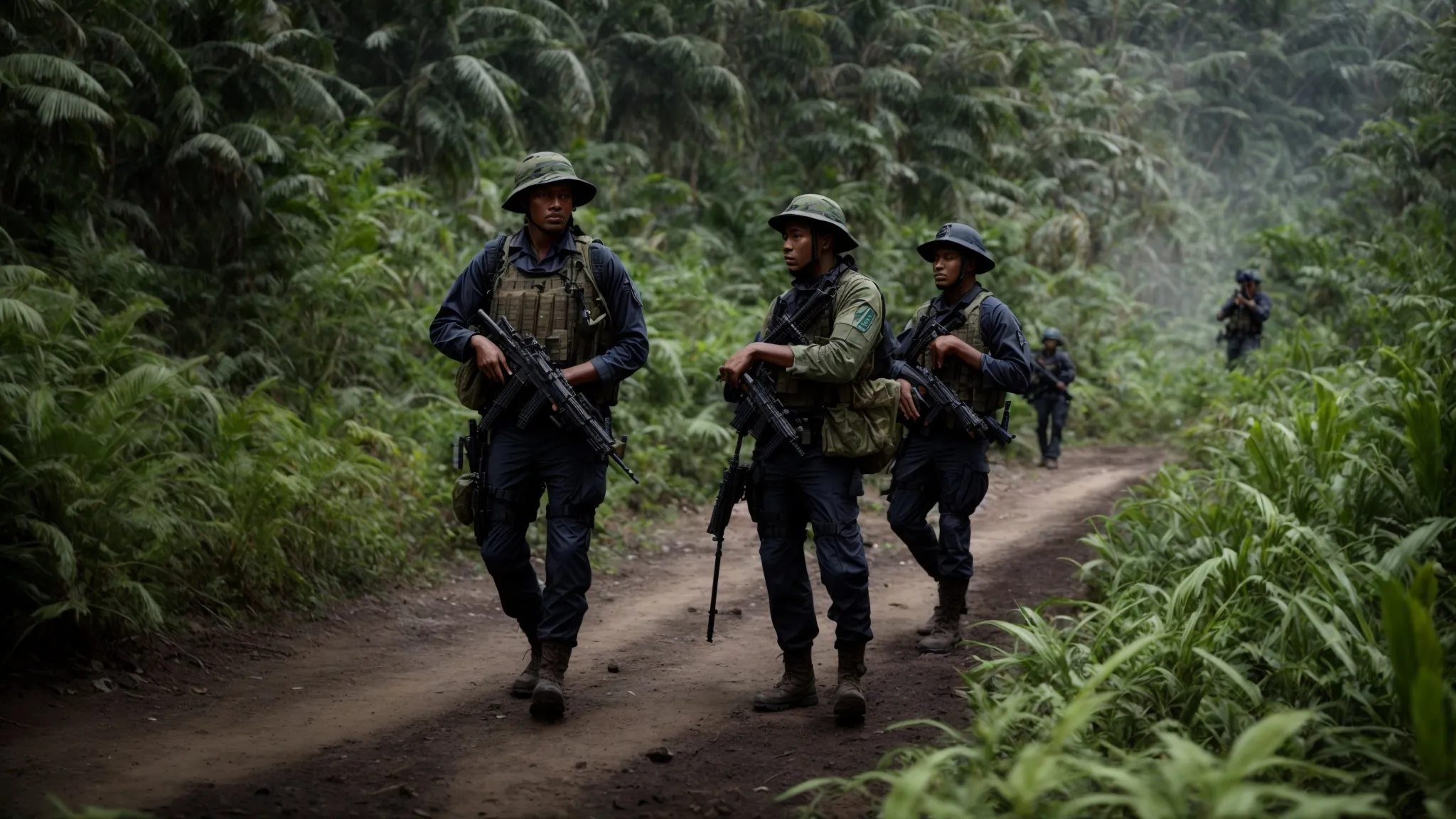
The escalation of unrest in Ecuador has been significantly punctuated by the emergence and entrenchment of armed groups and gang violence within the country.
Diplomats and military analysts are focusing their lenses on the identification of these gangs or rebel factions, which possess varying ideologies and objectives.
As the nation’s social fabric unravels, controlling zones and territories becomes a contentious pursuit, with these factions maneuvering to consolidate their strongholds.
Concurrently, an assessment of military strength and capabilities unfolds, revealing the extent to which these groups are fortified.
These complex dynamics of power and territoriality fuel the intensifying conflict, presenting a formidable challenge to Ecuador’s quest for tranquility.
Consequences for Ecuador’s Economy and Trade
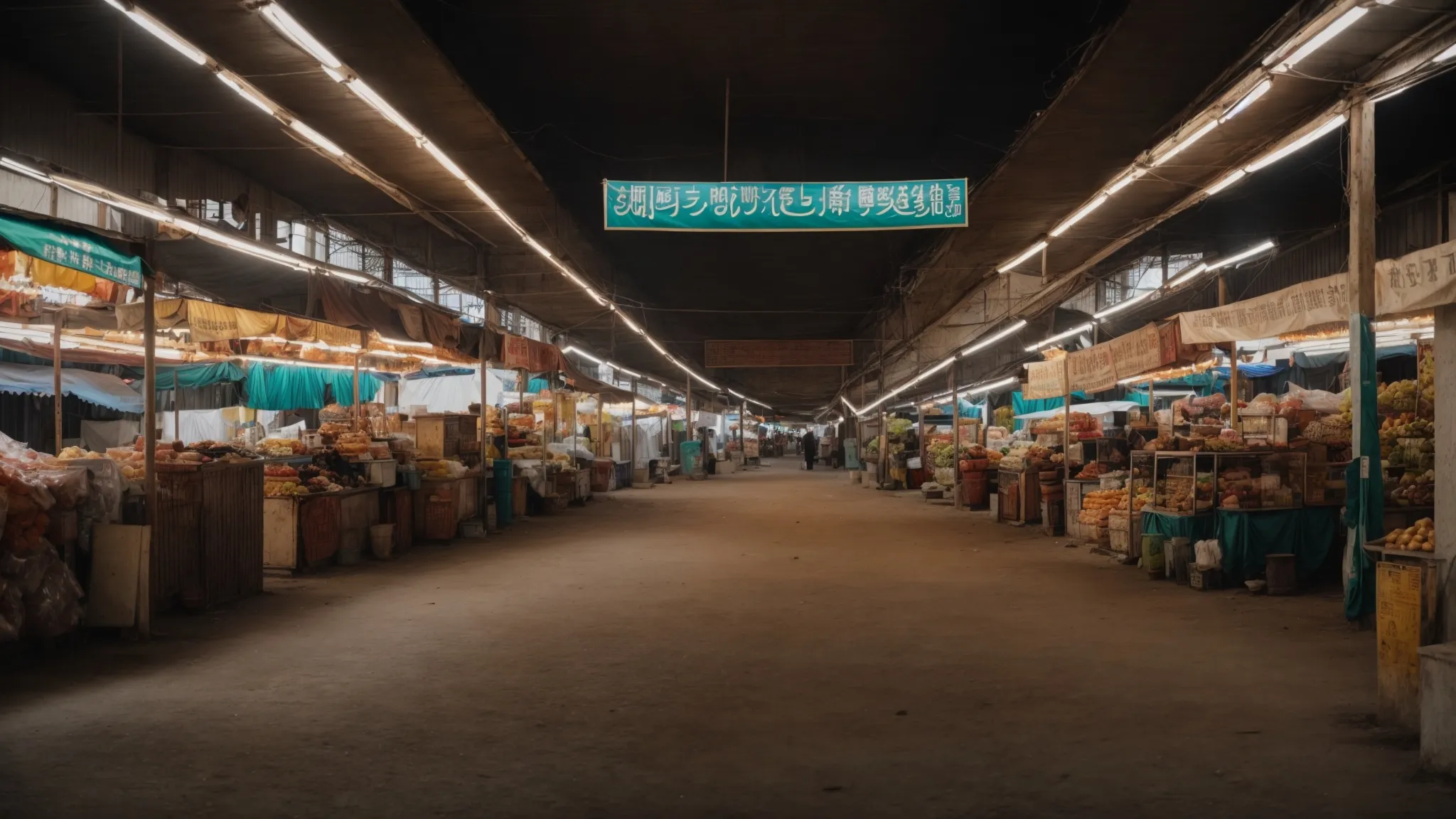
Ecuador’s internal armed conflict has cast a long shadow over its economic stability, with notable repercussions for trade and commerce.
Oil exports, a crucial artery for the nation’s revenue, face significant jeopardy, with investments teetering under the weight of lingering uncertainty.
Local businesses, the bedrock of Ecuador’s economy, experience perturbations as the turmoil disrupts daily operations.
Once a beacon of hope for economic diversification, the burgeoning tourism sector now contends with the specter of decline amidst safety concerns.
As these sectors grapple with the fallout of conflict, financial markets calibrate their response, reflecting the country’s heightened risk profile and the global investor community’s reactionary pulse.
Effect on Oil Exports and Investments
The strife surfacing in Ecuador has sent shockwaves through the domain of oil exports, leading to a precarious atmosphere for foreign direct investment. As the nation garners global headlines for disturbance rather than stability, investment trends display a marked shift towards caution, reflecting the heightened risk associated with resource-based industries in conflict zones. The use of treaty dispute resolution and arbitration by the International Centre for Settlement of Investment disputes can help mitigate these risks.
Trade operations, particularly in the pivotal oil sector, suffer setbacks as operational disruptions become commonplace. Companies entangled in the energy industry are compelled to re-evaluate their long-term strategies in Ecuador, weighing the potential for profit against the escalating insecurity and potential need for dispute resolution mechanisms such as international investment agreements:
- Persistent conflict stymies foreign direct investment confidence.
- Oil exports, a lifeline of the nation’s economy, are imperiled by instability.
- Corporations contemplate the geopolitical risk against the backdrop of sustained discord.
Disruptions to Local Businesses
Amid escalating strife, local entrepreneurs and small business owners encounter severe operational stumbling blocks. The unrest that hampers logistics and deters shoppers from frequenting local markets delivers a profound blow to the economic vitality these enterprises inject into communities. The resolution of these issues can be sought through international investment dispute settlement mechanisms such as the arbitral tribunal or conciliation.
With the advent of an internal armed conflict, the very heartbeats of Ecuadorian commerce—its marketplaces, shops, and service providers—beat irregularly. This disruption shrouds the prospect of economic growth in uncertainty, challenging the resilience and adaptability of the local business landscape. However, dispute resolution mechanisms such as arbitration and bilateral investment treaties can help mitigate these challenges.
Tourism Industry Under Threat
The internal strife-wrenching Ecuador’s societal tapestry threatens to eclipse the burgeoning potential of its tourism industry. As safety concerns escalate, international travelers grow hesitant, profoundly stymieing an industry that has been pivotal in shaping the nation’s economic diversification narrative.
Historically an allure for adventurers and culture enthusiasts, Ecuador’s travel sector now contends with the daunting task of operating within the shadows of unrest: An atmosphere rife with apprehension deters tourists, inducing a decline in both leisure and business travel revenue streams. However, dispute resolution mechanisms such as international investment agreements remain crucial for navigating foreign direct investment and resolving conflicts in the global arena.
| Aspect of Tourism | Pre-Conflict Status | Post-Conflict Impact |
|---|---|---|
| Leisure Travel | Flourishing | Significant Decline |
| Business Conferences | Growth trend | Events Cancellation |
| Cultural Festivals | Popular attraction | Reduced Attendance |
| Eco-tourism | Increasing popularity | Visitor Hesitancy |
Financial Markets’ Reaction
Sensing the tremors of Ecuador’s deepening crisis, financial markets have reacted with characteristic prudence, instigating a recalibration of investment stances. The nation’s stock volatility and the value of its currency betray the collective apprehension of investors, underscoring the burgeoning risk seen in Ecuador’s fiscal future. Dispute resolution mechanisms, such as arbitration, are critical in safeguarding foreign direct investment and enforcing international investment agreements.
Bonds and equities associated with Ecuadorian entities have endured erratic shifts as analysts scrutinize the unfolding internal conflict and reassess economic projections. Market reactions mirror concerns over immediate returns and signal skepticism regarding the country’s mid-to-long-term financial stability amid the turmoil. Treaty dispute resolution is also a factor to consider in international investment agreements.
Foreign Investment Issues
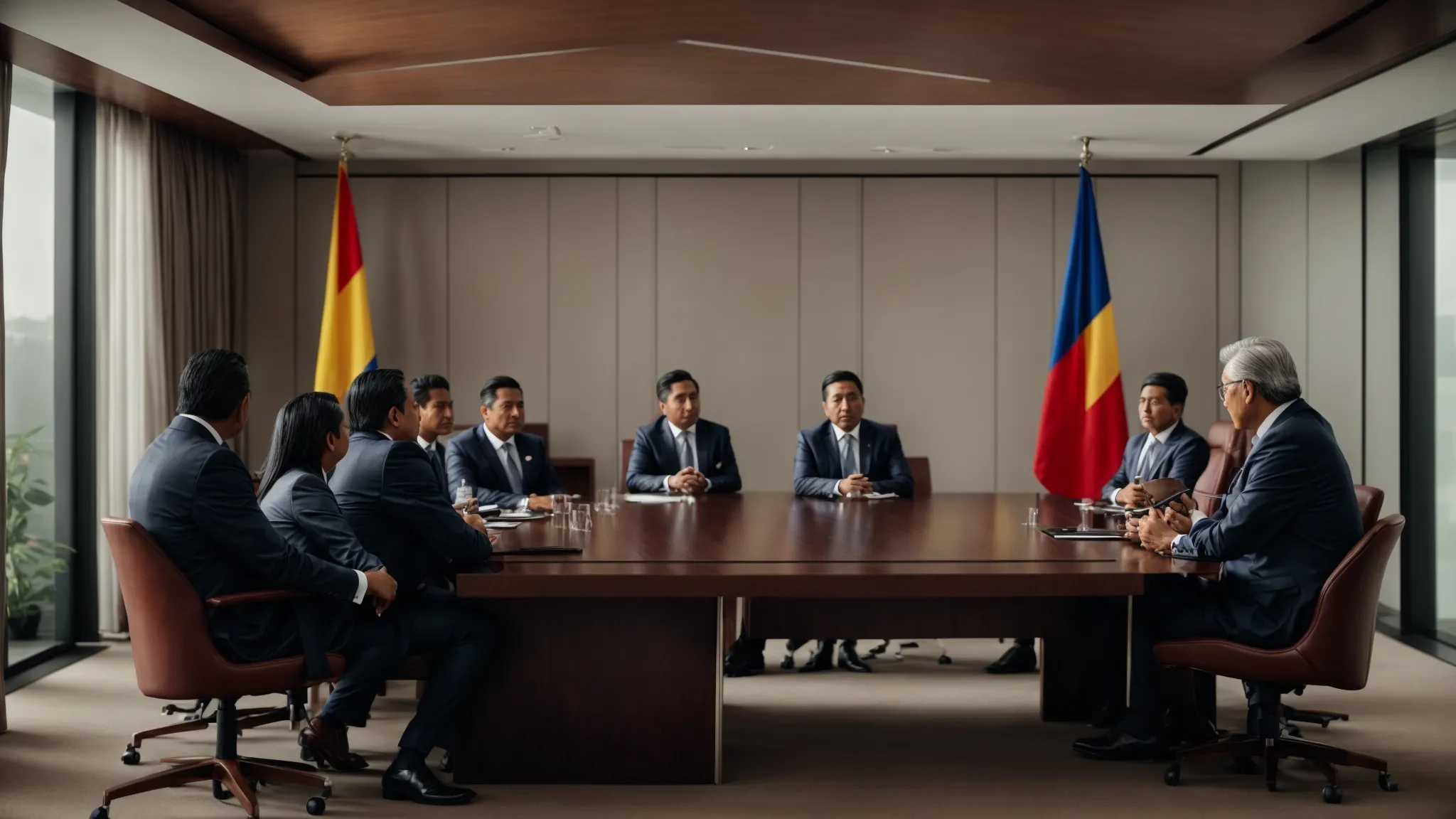
The onset of an internal armed conflict in Ecuador stands to have far-reaching implications, particularly within the realm of foreign investment, with investor confidence shaken amid escalations. Dispute resolution mechanisms, such as international arbitration, would play a crucial role in resolving conflicts and protecting foreign direct investment.
As multinational corporations and private investors reassess the safety of their assets and ventures, the potential for investment treaty claims against Ecuador emerges, raising concerns over the country’s adherence to international investment agreements.
Eyeing the initiation of investor-state arbitration proceedings, stakeholders are investigating breaches of bilateral investment treaties, with much focus on whether their interests have been subject to fair and equitable treatment as required by law.
Ecuador faces a difficult challenge in protecting foreign investments while managing domestic unrest. The situation is complex and requires a delicate balancing act. If you want to learn more about the treaty designed to safeguard your rights as an investor, please visit the International Investment Agreements Navigator on the UNCTAD Investment Policy Hub.
Potential Investment Treaty Claims against Ecuador
Ecuador’s internal crisis has led to heightened scrutiny among international investors, with consideration being given to potential claims under various bilateral investment treaties (BITs). Investors may argue that the state’s inability to manage the conflict has undermined the protection of their investments, thus possibly prompting international arbitration proceedings.
In this fraught landscape, Ecuador faces the task of upholding its treaty obligations by ensuring that foreign investments remain secure despite the turmoil. Studios reviews of the treatment of foreign entities—under the lens of national treatment and the minimum standard of treatment clauses—may uncover the state’s alleged shortcomings and potentially lead to investment dispute arbitration under international law.
Initiation of Investor-State Arbitration
Amid the upheavals characterizing Ecuador’s internal armed conflict, a significant development has unfolded in international investment disputes. With the stability of the nation in question, investors are progressively turning to the mechanisms of investor-state arbitration, seeking recourse for what they deem breaches of their rights under international investment agreements.
The initiation of these arbitration proceedings can be a meticulous process guided by the principles and regulations of entities such as the International Centre for Settlement of Investment Disputes (ICSID) and the United Nations Commission on International Trade Law (UNCITRAL), governing the dispute resolution of foreign direct investment and treaty disputes.
- Investors submit a notice of dispute, initiating the arbitration process.
- The claimant must demonstrate that the host state violated the investment treaty provisions.
- The selection of arbitrators follows, with each party typically choosing one and both agreeing on a presiding arbitrator.
Bilateral Investment Treaty Breach
As Ecuador grapples with its internal armed conflict, allegations of breaches to Bilateral Investment Treaties (BITs) have surfaced, threatening the country’s relationships with foreign investors. Claims focus on the failure to provide the promised standard of protection and security to foreign-owned assets, giving rise to potential legal challenges and straining diplomatic ties.
Under the shadow of such conflict, international arbitration becomes a pivotal recourse for investors alleging that Ecuador has violated the equitable treatment and full protection provisions of BITs. These assertions could compel the nation to defend its actions within the legal frameworks of international investment law, where the sanctity of contracts and investor rights come under rigorous examination.
Potential likeliness of Fair and Equitable Treatment claims
The specter of fair and equitable treatment claims against Ecuador gains prominence as foreign investors scrutinize the government’s response to the internal conflict. As disruptions challenge the operational security and contractual assurances of foreign-owned ventures, the probability of legal action grounded in the principle of equitable treatment under various international investment agreements, such as a bilateral investment treaty or a free trade agreement, ascends.
Elevated risk perception among international investors has triggered a thorough analysis of Ecuador’s obligations under applicable bilateral and multilateral treaties. This meticulous examination may pave the way for arbitration claims should investors conclude their interests have suffered due to the state’s handling of the conflict. Dispute resolution and arbitration play a crucial role in resolving conflicts related to foreign direct investment and treaty disputes.
| Investor Concern | Investment Agreement Obligation | Consequence for Ecuador |
|---|---|---|
| Operational Security Risks | Equitable Treatment Standards | Arbitration Claims |
| Contractual Assurance Breaches | Protection of Investments | Diplomatic Strains |
WE CAN HELP YOU
Ecuador’s declaration of an internal armed conflict is a critical moment that underscores the gravity of escalating tensions within the nation. Stemming from deep socio-economic disparities and controversial governmental policies, the conflict has amplified across historically marginalized regions and political power centers, profoundly disrupting civilian life and economic activities. Schools are closing, healthcare is compromised, commerce is disrupted, and an atmosphere of fear alters daily routines.
The government’s multipronged approach, combining security interventions with dialogue and policy re-evaluation, is subject to intense scrutiny as it attempts to restore order. Internationally, the situation has elicited a spectrum of responses, from statements of concern from global leaders to discussions of sanctions and the provision of humanitarian aid.
Ecuador’s ongoing turmoil poses economic challenges, threatening key industries and investor confidence. In case of disputes, an international tribunal may be involved due to investment agreements and treaties. Insurgent groups further complicate the situation.
This is why Transnational Matters’ attorneys have tremendous experience in dealing with Investor-State Arbitration when civil unrest arises in foreign markets. Our team deeply understands the complexities and challenges of dealing with multi-jurisdictional legal matters. We believe that our clients’ success ultimately depends on our ability to navigate these transnational issues effectively, which is why we take great pride in our expertise in this area. Our approach is to combine traditional legal strategies with creative problem-solving techniques. This allows us to find effective solutions for our clients while also being sensitive to cultural differences and local customs. Act Now! and Call our Office Today.

